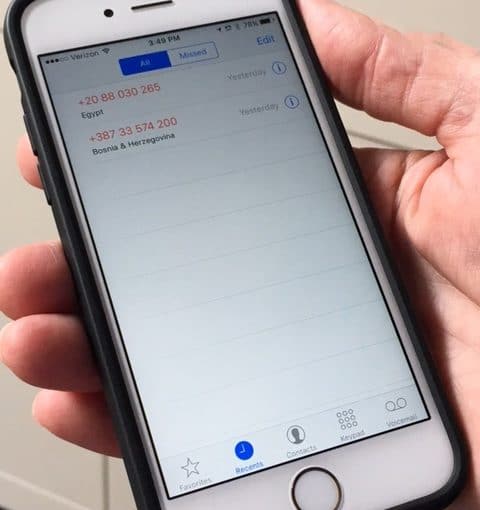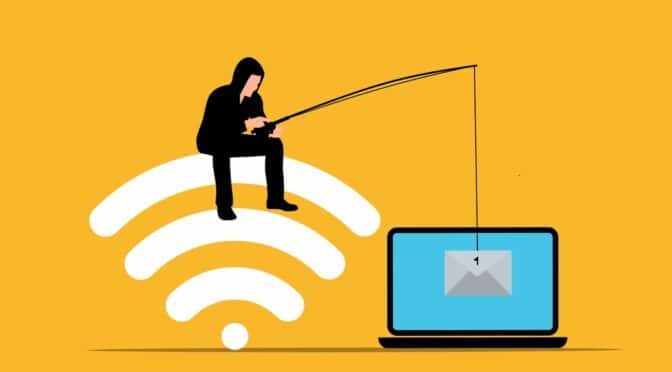by Nick Taylor
“Wangiri” sounds like an order at a sushi restaurant. It’s not. It’s Japanese for “one ring and cut,” an international phone scam. It’s also a good reason why you shouldn’t return an unknown international call.
How do I know this?
The other day I saw that I’d received a couple of unusual calls on my cell phone. One was from Egypt, the other from Bosnia and Herzegovina. I don’t know anybody in either of those countries. But I did make hotel reservations in a couple of Bosnian cities not long ago, and I was tempted to return that call.
Good thing I didn’t.
That’s where wangiri comes in. In India and other spots around the world, they call the one-ring phone call scam from an mysterious international location wangiri because it started in Japan.
Scammers call your number, let it ring once and hang up hoping you’ll call back. Here’s why.
Fraudsters around the world acquire a premium rate number from their local telecom providers. Calls into those numbers carry far higher rates than calls to regular numbers, and there’s no way to know the difference.
If you call back, whoever answers will tell you that you’ve won a lottery or some other tall tale that’s designed to keep you on the line as long as possible.
Or somebody might answer and ask you to hold. While you do, the outrageous charges keep mounting. You won’t know what’s happened until your next cell phone bill arrives.
The fraudsters and the telecom providers split the profit in this scam. In fact, the Communications Fraud Control Association says that this and an industrial strength version of the scam costs victims around the world almost $5 billion annually.
They call the high-powered version International Revenue Sharing Fraud, or phone traffic pumping. You can get an international premium rate number, usually for business. Those companies may operate legitimately but their business model offers payment for call volume. Investigators say this make the system ripe for fraud.
Bad guys, operating globally, hack into private or business phones and generate an enormous number of calls to premium rate numbers. The study points to what happened to a doctor’s office in Maryland. Scammers hacked the automated voicemail system and made $2 million worth of calls to premium numbers during one weekend.
I wouldn’t have racked up a $2 million phone bill by returning the Egyptian and Bosnian calls. But it would have cost me money. So country codes 387 (387 33 574 200) and 20 (20 88 030 265) remain on my radar and list of things to avoid.
The Federal Communications Commission warns not to return the calls from unknown international numbers. They also point out that some may look like they come from U.S. locations. That, of course, makes it more confusing.
So the FCC suggests:
- Check the country code before you call back.
- If you don’t make international calls, ask your carrier to disable the international call function.




Good article, but the author is using “area codes’ when I’m sure he meant “country codes” — they are not the same thing.
Thanks Les. You are right and we made the correction.